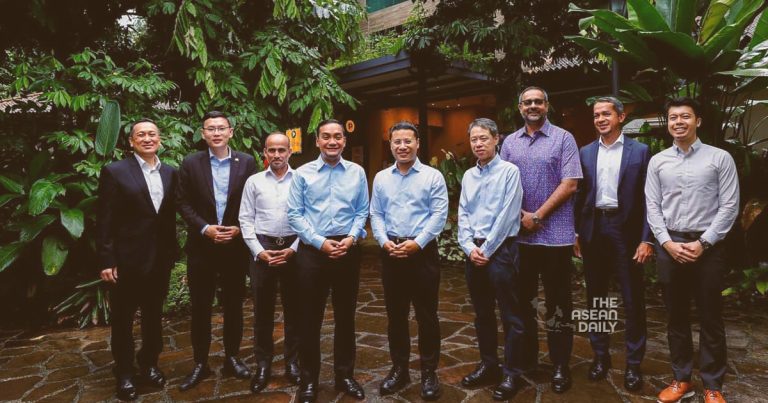14-7-2023 (SINGAPORE) Singapore and Malaysia have announced plans to establish a task force to investigate the creation of a special economic zone in Johor. The two countries are also inching closer to launching a new ferry service between Tuas in Singapore and Puteri Harbour in Johor.
Speaking to reporters on Friday (Jul 14), Singapore’s National Development Minister Desmond Lee expressed enthusiasm for the idea of a special economic zone, highlighting the numerous benefits it would bring to Singapore, Malaysia, and the state of Johor. He emphasized that the zone would not only enhance the economy but also provide significant job opportunities, improved livelihoods, and better lives for residents of both Johor and Singapore.
During the 16th meeting of the Malaysia-Singapore Joint Ministerial Committee for Iskandar Malaysia (JMCIM), it was noted that the establishment of a special economic zone would promote sustainable growth, human capital development, and improved infrastructure and connectivity. The JMCIM also acknowledged Johor’s impressive growth and substantial investments in the region by Singapore.
Johor attracted RM70.6 billion (US$15.6 billion) in foreign investments in 2022 across various sectors, including electrical and electronics, medical equipment, food manufacturing, and data centers.
The task force responsible for studying the special economic zone will provide a progress update during the 10th Singapore-Malaysia Leaders’ Retreat, scheduled to take place in Singapore later this year. The Ministry of Trade & Industry from Singapore and the Ministry of Economy from Malaysia will lead the task force, with support from relevant government agencies in both countries.
Established in 2007, the JMCIM regularly convenes to review cooperation in the South Johor economic zone of Iskandar. Last year, the committee announced the formation of a transportation workgroup tasked with improving cross-border connectivity for pedestrians and cyclists and exploring the feasibility of a new ferry service between Tuas and Puteri Harbour.
JMCIM confirmed that commercial operators in both Singapore and Malaysia will begin discussions to assess the commercial viability of the potential ferry service between Puteri Harbour and Tuas. However, no specific details regarding the departure location in Tuas were provided.
The transportation workgroup has also tentatively agreed to increase the frequency of the KTM Tebrau Shuttle, a train service connecting Woodlands and Johor, from 31 to 36 daily trips. The implementation of the new schedule will occur once further details are worked out between the relevant agencies on both sides.
Regarding the special economic zone in Johor, Minister Lee mentioned that the task force would initially focus on drafting the terms of reference and outlining the collaboration’s broad areas. Special economic zones are geographically delimited areas within a country that offer well-developed industrial spaces, along with special legal regimes, rules, institutional environments, and incentives. Several Association of Southeast Asian Nations (ASEAN) member states have implemented such zones to attract investments, generate employment opportunities, and boost exports. These zones encompass export processing zones, free trade zones, technology parks, and digital free trade zones.
Minister Lee acknowledged the substantial progress achieved by various workgroups within the JMCIM, covering areas such as transport connectivity, innovation, business ecosystems, environment, tourism, and technical and skills training. He emphasized that many of these efforts would align with the vision of the special economic zone.
The concept of a special economic zone was initially proposed by Malaysia’s Economy Minister Rafizi Ramli, who stated in May that discussions had taken place with Singapore, although formalization was still pending. Mr. Rafizi emphasized the need for harmonization to ensure seamless interconnectivity and interoperability within the economic region. Immigration and customs harmonization would be crucial, as an economic zone would facilitate smoother movement of people and goods. However, these matters are still in the early stages.
Representing Malaysia at the meeting were Minister Rafizi and Johor Chief Minister Onn Hafiz Ghazi, while Minister Lee was accompanied by Acting Transport Minister Chee Hong Tat.
The JMCIM expressed anticipation for their next meeting in Malaysia, aiming to sustain the positive momentum of bilateral collaboration.




